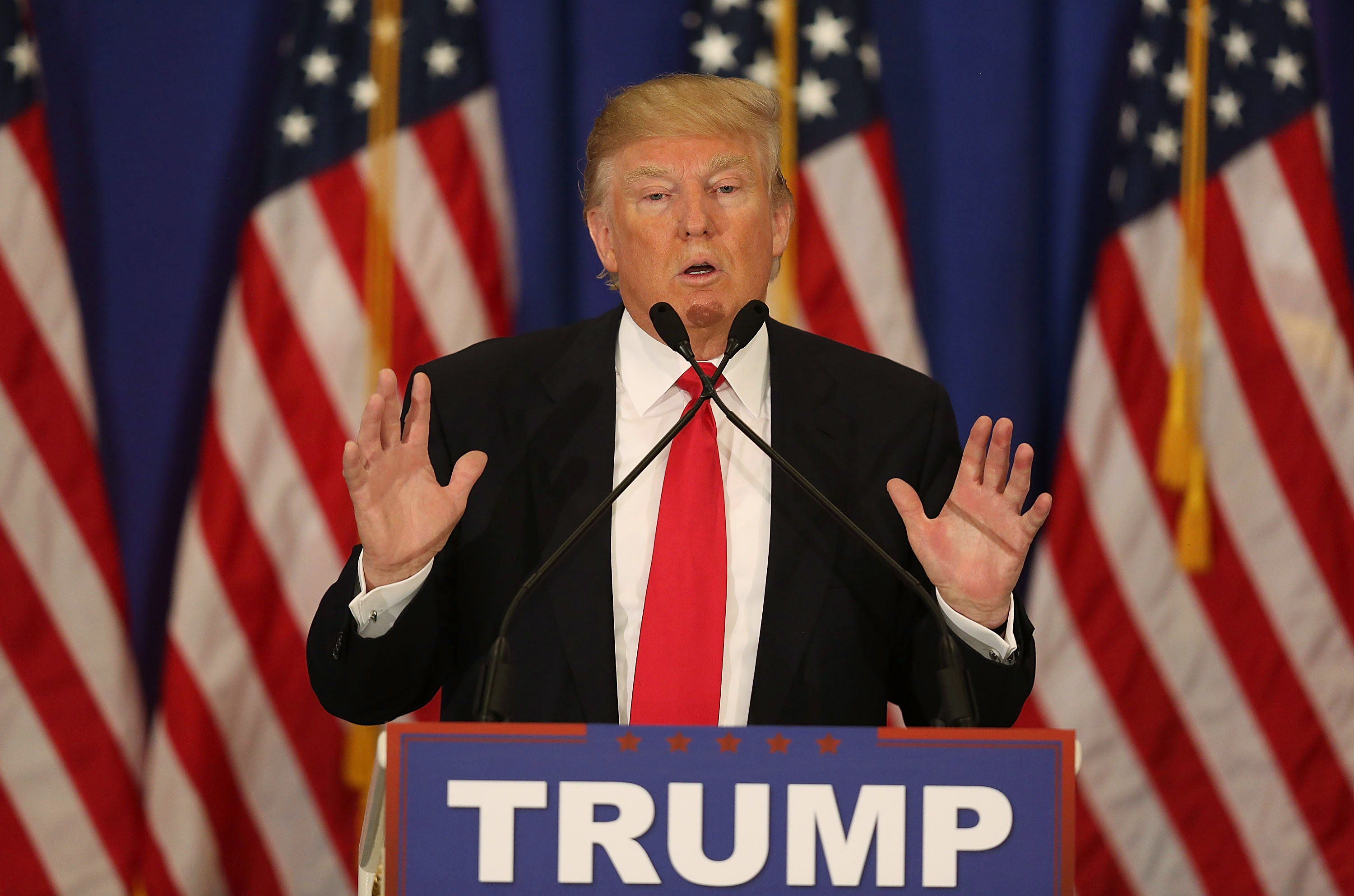How Democrats can undercut Donald Trump's victories
Even if they can't win their votes, Democrats must keep white people from being too desperate


In Mississippi, Michigan, and Hawaii on Tuesday, Donald Trump cruised to two more big victories, almost certainly on the strength of white working-class voters from the most economically depressed parts of the country, where he has been strong before. The Trump voter is on the fringe of the GOP coalition and general society: working-class, less-educated, and alienated from mainstream society.
Conservatives are in a full-blown panic about Trump, mainly because he represents a mortal threat to the cozy political machine that turns the cultural and racial resentments of conservative base voters into deregulation and handouts for the rich.
However, Trump — and the movement he represents — is also a problem for the nation as a whole. Every country has some sort of conservative party, and it's been clear for years that the American version is deeply sick. At some point Republicans will return to power, and it's a problem for everyone if they put up a racist tinpot dictator cutout as their candidate. Though liberals probably cannot win many Trump voters, universal economic security is still the best way to deflate Trumpism.
The Week
Escape your echo chamber. Get the facts behind the news, plus analysis from multiple perspectives.

Sign up for The Week's Free Newsletters
From our morning news briefing to a weekly Good News Newsletter, get the best of The Week delivered directly to your inbox.
From our morning news briefing to a weekly Good News Newsletter, get the best of The Week delivered directly to your inbox.
Some analysts, like my colleague Jeff Spross, and The Baffler's Thomas Frank, emphasize that Trump's support is rooted in serious economic problems. Trade, deindustrialization, and the weak economic recovery during the Obama years have decimated the white working class, and Trump is feeding off and reinforcing a legitimate economic grievance.
Others argue that Trump's support is driven by simple racism, and there's simply no reason for Democrats to attempt to cater to committed Republicans. This is reinforced by the entertaining spectacle of conservative writers and intellectuals being clubbed over the head with the fact that outright bigotry is a major part of their political coalition. People like the National Review's Kevin D. Williamson have been constructing preposterous revisionist histories for years wherein Democrats are actually The Real Racists, and now they're having to watch Trump win a Republican primary on the strength of outright bigotry.
These two camps have gone around and around on whether economic insecurity or bigotry is actually the major driver of Trump's support. Since we have not invented mind-reading technology, it's impossible to determine which one is the "real" motivator.
But I submit regardless of how much bigotry is driving Trumpism, it's vitally important for Democrats to provide material security anyway. Because while bigotry is a serious and concrete interest of its own, it is undoubtedly strengthened by economic failure. The fact that society is patently failing to function for large swathes of the population strengthens the credibility of extremists and fringe groups, and enables ethnic scapegoating. It cannot be a coincidence that the Nazi Party, for example, saw their electoral high tide in 1932, when unemployment in Germany was 30 percent.
A free daily email with the biggest news stories of the day – and the best features from TheWeek.com
Conversely, economic strength and general prosperity discredits extremism, and strengthens a more healthy conservatism. When people have a lot to lose, extreme ideas are less palatable. Prejudice continues to exist, but it's relatively quiescent — as happened briefly in the mid-'20s, after Hjalmar Schacht stopped German hyperinflation, leading to a decline in Nazi political fortunes.
It's not exactly "fair" for the white working class to endorse someone like Trump when black and brown people have been enduring worse for literally hundreds of years. Yet it's also not exactly unreasonable for people to be angry at a political-economic establishment that threw them overboard several decades ago. Poor white people aren't doing as bad as black and brown people on average, but they are still doing objectively bad.
Ultimately it's pointless to endlessly litigate who has the right to be upset about what. But it is beyond question that universal economic security — including paid maternity leave, increased Social Security, improvements to ObamaCare, and so on — will at least help in deflating a Trumpist white nationalism. People have trouble maintaining a persecution complex when they're not struggling to survive.
Ryan Cooper is a national correspondent at TheWeek.com. His work has appeared in the Washington Monthly, The New Republic, and the Washington Post.
-
 A lemon-shaped exoplanet is squeezing what we know about planet formation
A lemon-shaped exoplanet is squeezing what we know about planet formationUnder the radar It may be made from a former star
-
 Political cartoons for January 4
Political cartoons for January 4Cartoons Sunday's political cartoons include a resolution to learn a new language, and new names in Hades and on battleships
-
 The ultimate films of 2025 by genre
The ultimate films of 2025 by genreThe Week Recommends From comedies to thrillers, documentaries to animations, 2025 featured some unforgettable film moments
-
 Bari Weiss’ ‘60 Minutes’ scandal is about more than one report
Bari Weiss’ ‘60 Minutes’ scandal is about more than one reportIN THE SPOTLIGHT By blocking an approved segment on a controversial prison holding US deportees in El Salvador, the editor-in-chief of CBS News has become the main story
-
 Has Zohran Mamdani shown the Democrats how to win again?
Has Zohran Mamdani shown the Democrats how to win again?Today’s Big Question New York City mayoral election touted as victory for left-wing populists but moderate centrist wins elsewhere present more complex path for Democratic Party
-
 Millions turn out for anti-Trump ‘No Kings’ rallies
Millions turn out for anti-Trump ‘No Kings’ ralliesSpeed Read An estimated 7 million people participated, 2 million more than at the first ‘No Kings’ protest in June
-
 Ghislaine Maxwell: angling for a Trump pardon
Ghislaine Maxwell: angling for a Trump pardonTalking Point Convicted sex trafficker's testimony could shed new light on president's links to Jeffrey Epstein
-
 The last words and final moments of 40 presidents
The last words and final moments of 40 presidentsThe Explainer Some are eloquent quotes worthy of the holders of the highest office in the nation, and others... aren't
-
 The JFK files: the truth at last?
The JFK files: the truth at last?In The Spotlight More than 64,000 previously classified documents relating the 1963 assassination of John F. Kennedy have been released by the Trump administration
-
 'Seriously, not literally': how should the world take Donald Trump?
'Seriously, not literally': how should the world take Donald Trump?Today's big question White House rhetoric and reality look likely to become increasingly blurred
-
 Will Trump's 'madman' strategy pay off?
Will Trump's 'madman' strategy pay off?Today's Big Question Incoming US president likes to seem unpredictable but, this time round, world leaders could be wise to his playbook
